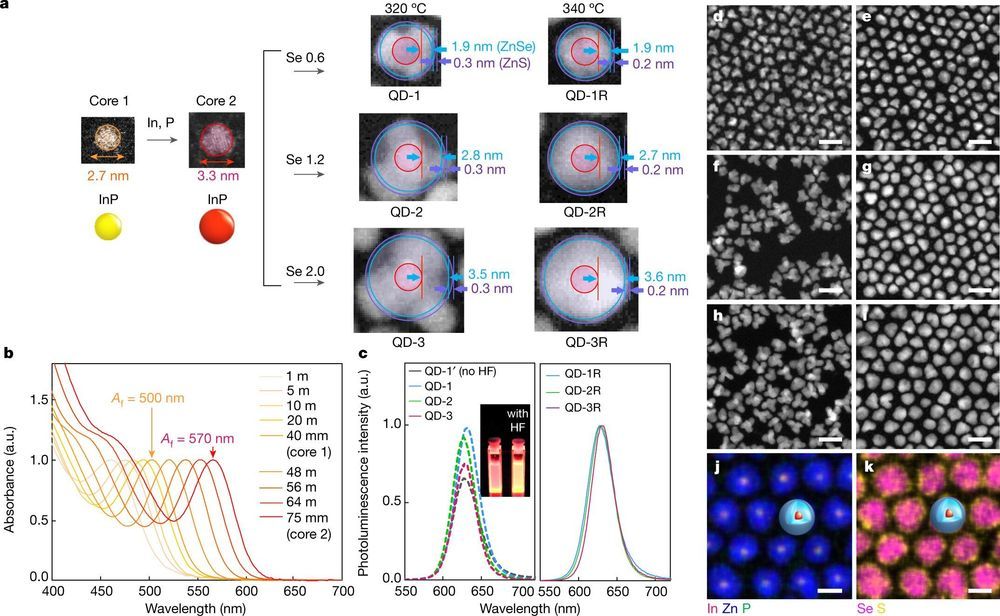A team at Samsung Advanced Institute of Technology has announced that they have improved quantum dot (QD) technology for use in large displays by developing QDs that are both more efficient and have no heavy metals. In their paper published in the journal Nature, the group describes their work and their plans for the future. Alexander Efros, with the Naval Research Laboratory, in Washington D.C. has published a companion piece in the same journal issue outlining the work by the team at Samsung.
Quantum dots are nanoscale semiconducting crystals that have unique optical and electronic properties due to quirks of quantum mechanics. Since their development in the 1980s, scientists have been finding many uses for them in optical devices. Unfortunately, as Efros notes, they suffer from two problems that have prevented them from being fully utilized. The first is that they are based on cadmium, a toxic heavy metal. The second is the QD phosphors that are used in display devices—they are not self- emissive, which means they need to be replaced by QD light-emitting diodes in order for them to be competitively efficient. Notably current Samsung QLED TV screens do not use the QLEDs as a source of light—instead, LCDs produce backlight which is then absorbed by a film of quantum dots. In this new effort, the group at Samsung has made progress towards addressing both problems.
